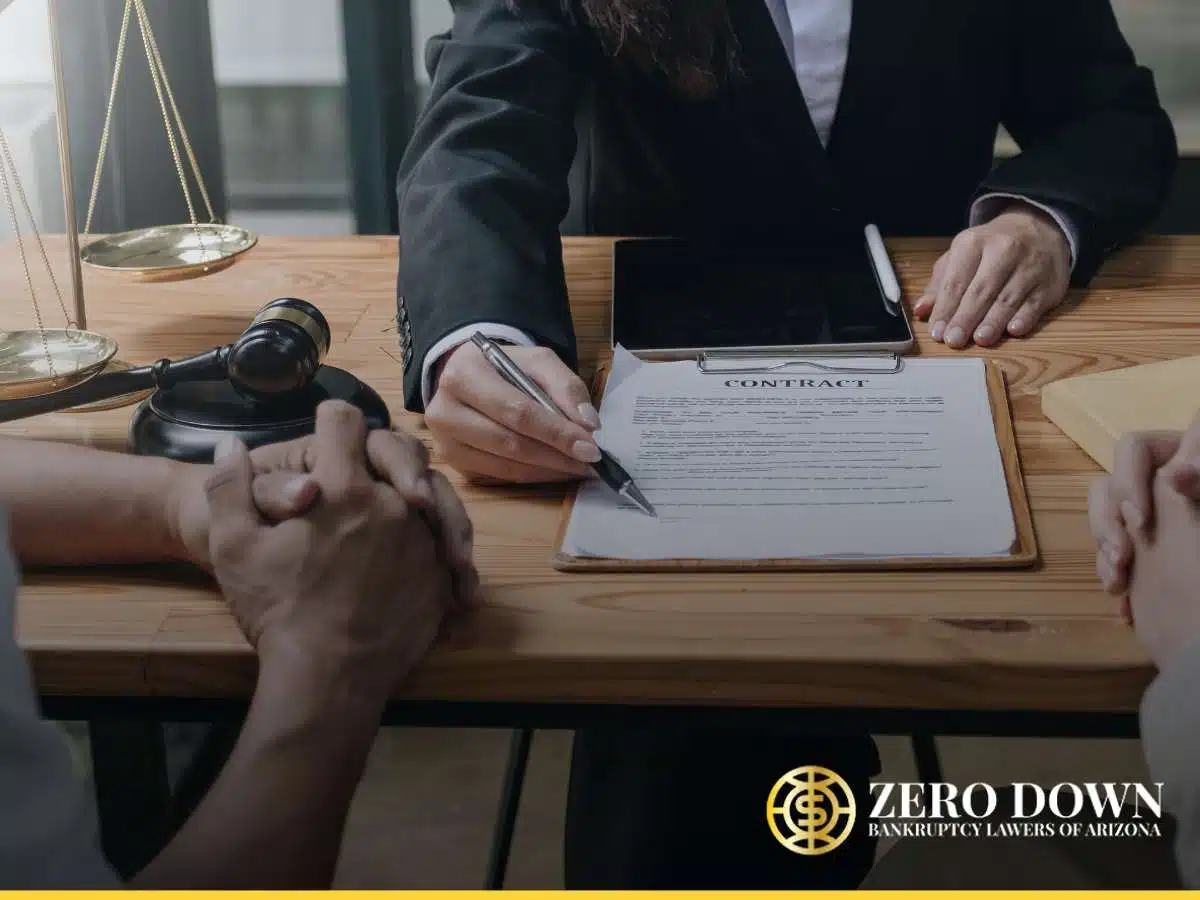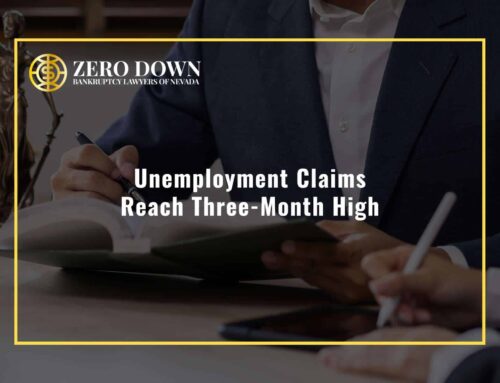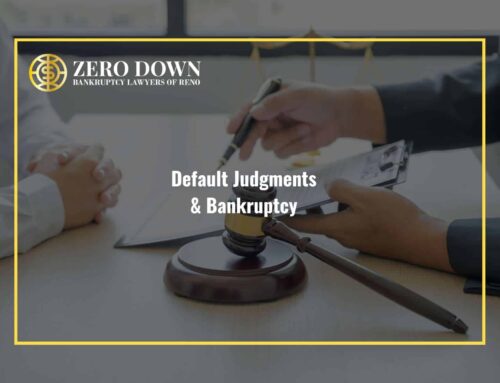Our lawyers regularly file bankruptcy petitions for several clients, knowing that their financial situation will improve if they act responsibly. Bankruptcy isn’t the right form of debt relief for everyone, a fact that a quality bankruptcy attorney will recognize. For your free consultation with one of our honest and experienced Tucson bankruptcy lawyers, call to schedule at 602-609-7000.
You Simply Don’t Have Enough Debt
Sure, owing a few thousand dollars to a credit card company or a medical provider can feel like a giant burden. And while paying off that amount of debt is no small feat, it usually isn’t enough to make declaring bankruptcy worth it. Filing bankruptcy comes with significant time and effort and has long-term implications for your credit history. Additionally, discharging bankruptcy in debt once will disqualify you from doing so again for a certain number of years, meaning you should save a bankruptcy filing for when you need it the most. A debt relief attorney can help you identify other methods that could help your financial situation more effectively than bankruptcy.
Most Of Your Debt Is Back Child Support
One of the most common reasons that someone’s wages are being garnished is because they were ordered by the court to pay child support. Failure to pay per court orders will result in that parent accruing arrearages, also known as back child support. The wage garnishment limits for back child support are much higher than they are for other types of debts in Arizona. For many debts, Arizona limits wage garnishments somewhere between 15 and 25 percent. However, Arizona recognizes how important it is for a parent to financially provide for their child, and allows much higher wage garnishments for unpaid court-ordered child support. If the parent has at least one dependent besides the child for which they are ordered to pay support, such as a spouse or another minor child, their paychecks can be garnished up to 50 percent to satisfy child support obligations. If the parent doesn’t have other dependents, their maximum potential child support wage garnishment increases to 60 percent. Should the parent fall more than 12 weeks behind on payments, the court will add an additional 5 percent to the garnishment. That brings the grand total to 55 percent for a parent behind on child support with other dependents, and 65 percent for a parent with no other dependents.
Child support isn’t just a debt that can be garnished at an especially high rate. Child support is among the debts that can’t be discharged in bankruptcy. Additionally, the automatic stay that a bankruptcy filing activates normally stops wage garnishments but may have no effect on a wage garnishment stemming from child support. Filing Chapter 7 bankruptcy won’t affect child support debts or a child support wage garnishment in any way whatsoever. If a parent with a child support wage garnishment files for Chapter 13 bankruptcy, the wage garnishment will only stop if the parent’s payment plan will fully pay off their child support arreararies. If this isn’t possible within the span of the payment plan, the parent’s wage garnishment will continue throughout the bankruptcy. The parent may also not qualify for Chapter 13 bankruptcy due to their disposable monthly income or because their debts exceed the Chapter 13 limits- $465,275 in secured debts and $1,395,875 in unsecured debts.
You Are Primarily Concerned With Your Student Loan Debt
Student loan debt can be unmanageable for many, but unfortunately, bankruptcy isn’t usually the proper avenue to address it. While student loan is technically unsecured debt, which is usually dischargeable in bankruptcy, the courts make an exception and only discharge student loan debt under extremely rare circumstances.
One of the most common tests to determine if student loan debt is dischargeable was set forth in the case Brunner v. New York State Higher Educ. Serv. For this reason, the test is commonly referred to as the “Brunner Test.” A debtor must be able to prove that three factors apply in order to pass the Brunner test for student loan dischargeability in bankruptcy:
- If the debtor is required to repay the loan, they will not be able to afford a minimal standard of living;
- The debtor’s current financial situation, or the circumstances making them unable to pay the loan, is unlikely to change;
- The debtor made good faith efforts to repay the loan before declaring bankruptcy.
While on their face, these factors may not sound so difficult to meet, they are hardly observed in a bankruptcy court setting. A minimal standard of living doesn’t include what many people consider to be basic necessities, such as cable or a gym membership. The court has to be fully convinced that the debtor’s situation won’t change for even a partial discharge to be granted. And for a debtor to have made a good faith effort to repay the loan, they will have already tried income-based payment plans and other hardship programs. If you think you may be one of the few who qualifies for student loan forgiveness through bankruptcy, you should discuss your situation with an experienced attorney.
You Want To Purchase A Home In The Near Future
One of the downsides of filing bankruptcy is that in most cases, the debtor will be ineligible to purchase a home for two years from the date of filing. This includes FHA mortgages, VA mortgages, and more. That means that if someone’s top priority is buying a home, they will need to find a different way to address their debt. You may be able to show to the court that your waiting period should be reduced to one year if you were forced to file bankruptcy due to extreme circumstances outside of your control.
You Have Co-Signers On Your Debts
Asking someone to cosign on a loan or other financial obligation is a huge favor, but may be necessary to be approved for the asset you need. Filing bankruptcy before paying off a loan with a co-signer could put that person in a very bad position. The creditor can pursue your co-signer for any amount that you discharged in bankruptcy. So let’s say that someone cosigned on your car, which has since been repossessed. Your lender charges you for the repossession, interest, and other legal fees. The car is sold at auction, and instead of you receiving the surplus of the funds from the auction, you are still left with a remaining balance to your lender. This balance is known as a repossession deficiency. You could have a repossession deficiency if you damaged the vehicle, otherwise reduced its condition and market value, or if you got the car for a bad deal. The lender will pursue you first for a repossession deficiency, possibly obtaining a judgment which can then be used to garnish your wages. If you file bankruptcy to clear the debt, the lender will pursue your co-signer in the same fashion. The same can be said for a spouse who was married to you when the debt was incurred, if you live in a community property state such as Arizona.
Call Our Arizona Bankruptcy Team For Your Free Consultation
If you’re not sure whether bankruptcy is right for you, the best way to find out is by asking. Our Phoenix bankruptcy lawyers offer free consultations by phone, making it easier and more convenient for you to consider bankruptcy from the comfort and privacy of your own home. To schedule your free consultation today, call us at 602-609-7000.
Arizona Offices
Phoenix Location:
343 W Roosevelt Street, Suite #100
Phoenix, AZ 85003
Email: [email protected]
Phone: 602-609-7000
Mesa Location:
1731 West Baseline Rd., Suite 101
Mesa, AZ 85202
Email: [email protected]
Glendale Location:
20325 N 51st Avenue, Suite #134
Glendale, AZ 85308
Email: [email protected]
Tucson Location:
2 East Congress, Suite #900
Tucson, AZ 85701
Email: [email protected]











